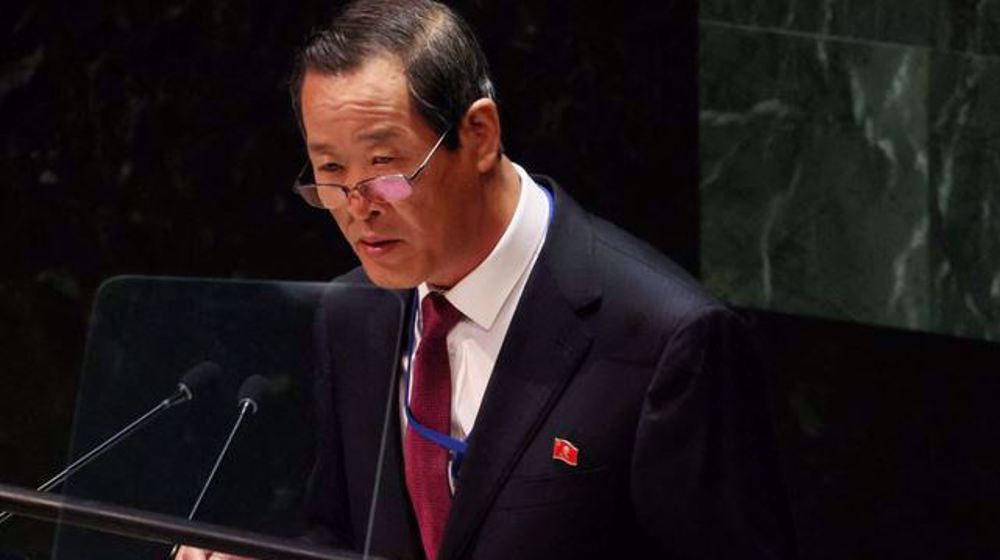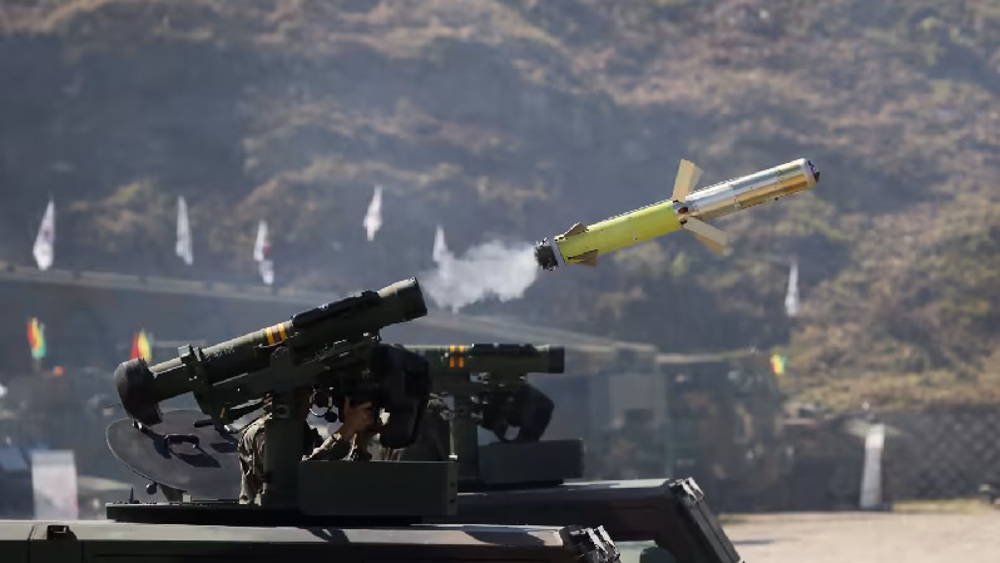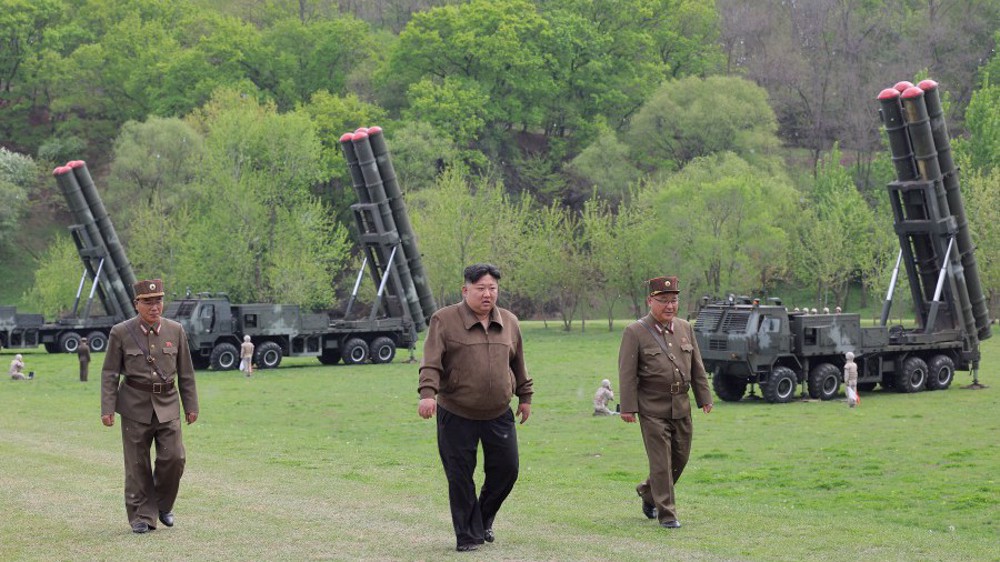Often left out, Japan seeks bigger role in North Korea diplomacy
Japan has offered to pay the initial costs of North Korea’s potential denuclearization, in the midst of high-profile diplomacy between the United States and the two Koreas that has often left Tokyo on the margins.
Japan’s Chief Cabinet Secretary Yoshihide Suga made the offer in a Wednesday statement, a day after US President Donald Trump and the North’s leader Kim Jong-un met in a historic summit in Singapore.
At the end of that summit, Trump and Kim signed a brief, broadly-worded document according to which both sides committed to working “towards complete denuclearization of the Korean Peninsula.”
While President Trump has said that denuclearization will start in North Korea “immediately,” no specifics have been offered on the disarmament process, including how long it would take and what mechanisms will be in place.
The International Atomic Energy Agency (IAEA) has offered to help with North Korea’s denuclearization, and Suga, the Japanese minister, said Japan would pay for IAEA inspections if such activities were in fact undertaken.
When asked who would be footing the bill for denuclearization in a press conference after the summit, Trump himself said he thought both Japan and South Korea would “help... very greatly.”
The agreement signed by Trump and Kim on Tuesday offers no specifics. North Korea’s official KCNA has reported that the US has offered Pyongyang “security guarantees,” but no mention of such concessions has been made in the document.
Amid the flurry of diplomacy that culminated in the Singapore summit, Japan has often had to press for its voice to be heard. Prime Minister Shinzo Abe of Japan has in the course of many conversations with President Trump stressed Tokyo’s concerns, including the need for the continued presence of US forces in the region.
Japan has been heavily dependent on US military protection since defeat in World War Two.
At one point, Abe said any deal with North Korea would have to see the country’s ballistic missiles of all ranges removed.
Trump, who has billed the meeting with Kim a success, has already suggested he would end the US’s annual war games with South Korea and bring American soldiers in the region home.
The annual drills have in the past been a major source of tension on the Korean Peninsula but have also been considered by Seoul and Tokyo as a bulwark against perceived North Korean aggression.

Only days after Trump announced an initial decision in March to meet with Kim, Japan pledged to provide more than $2.8 million to fund the potential inspections of the North’s nuclear facilities by the IAEA if Pyongyang agrees to such inspections.
IAEA inspectors previously monitoring North Korea’s nuclear facilities were expelled in April 2009, after the then-six-party talks for North Korea’s denuclearization collapsed.
Japan wants the US war games to continue
Highlighting Tokyo’s anxiety, Japanese Defense Minister Itsunori Onodera said on Wednesday that the US military presence in South Korea and the joint exercises were “vital” and had to continue.
“The drills and the US military stationed in South Korea play a vital role in East Asia’s security,” Onodera said. “We would like to seek an understanding of this between Japan, the US and South Korea.”

In his Wednesday remarks, Trump called the annual drills both expensive for America and “provocative” toward North Korea.
“We have, right now, 32,000 soldiers in South Korea, and I’d like to be able to bring them back home,” Trump said. “But that’s not part of the equation right now. I hope it will be eventually.”
US military forces have been stationed in the South since the end of the Korean War in 1953.
VIDEO | Wounded Gazans rushed to hospital following airstrike on Rafah
VIDEO | Pakistan unites in protest against Israeli genocide as university students join in
VIDEO | Gaza carnage unabated
Israel alleges killing ‘Hamas’ naval commander’
AIPAC censures Biden for pausing arms shipment to Israel
Fuel running out at Gaza hospitals amid Israeli assault on Rafah: WHO
Hezbollah says it hit Israeli targets in ‘multipronged attack’
VIDEO | US aircraft carrier returns to Red Sea as Yemen warns Israel over Rafah














 This makes it easy to access the Press TV website
This makes it easy to access the Press TV website